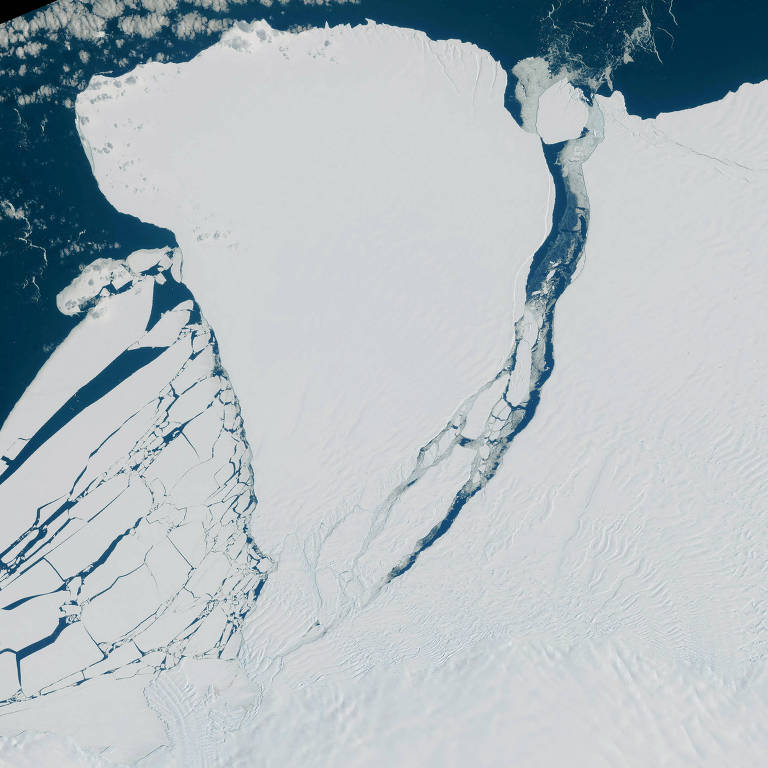An iceberg the size of the city of São Paulo (1,521 km²) broke off on Sunday (22) from an ice shelf in Antarctica. The disruption was announced the following day by British scientists, who are stationed at a research station close to the site.
Despite the fact that the continent is threatened by rising global temperatures, researchers from the British Antarctic Survey (BAS), which studies the polar regions, said that the detachment is not due to climate change.
The 1,550 km² block of ice broke away from the platform on Sunday afternoon, after the strong tide widened a crack that already existed there, BAS detailed.
Two years ago, another iceberg, of similar size, had already broken loose in the same region, called the Brunt Ice Shelf and on which the British scientific base Halley VI is located.
See before and after the iceberg calved

Brunt Ice Shelf, in Antarctica, was recorded on January 20, before the iceberg broke free, and four days later, when the giant ice block had already broken off – European Union/Copernicus/Reuters
Large cracks in the ice shelves have been widening over the past decade, according to glaciologists.
In 2016, after the rift that broke on Sunday began to widen, the BAS decided to move the Halley VI base elsewhere, about 20 km away, for fear that it would drift on an iceberg.
“This detachment was expected and is part of the natural behavior of the Brunt Ice Shelf. It is not linked to climate change,” explained glaciologist Dominic Hodgson, quoted in a note.
Antarctica, however, suffers the consequences of global warming. Last year, record high temperatures were recorded in the region.
In February 2022, the extent of ice on the continent reached the lowest level ever recorded in 44 years of satellite observations, recently indicated the annual report of the European program on climate change Copernicus.
In 2021, the melting of an iceberg that had broken off four years earlier released more than 150 billion tons of fresh water mixed with nutrients into the ocean. The fact was considered worrying by scientists due to the impact of this volume on a fragile ecosystem.
I have worked as a journalist for over 10 years, and my work has been featured on many different news websites. I am also an author, and my work has been published in several books. I specialize in opinion writing, and I often write about current events and controversial topics. I am a very well-rounded writer, and I have a lot of experience in different areas of journalism. I am a very hard worker, and I am always willing to put in the extra effort to get the job done.










